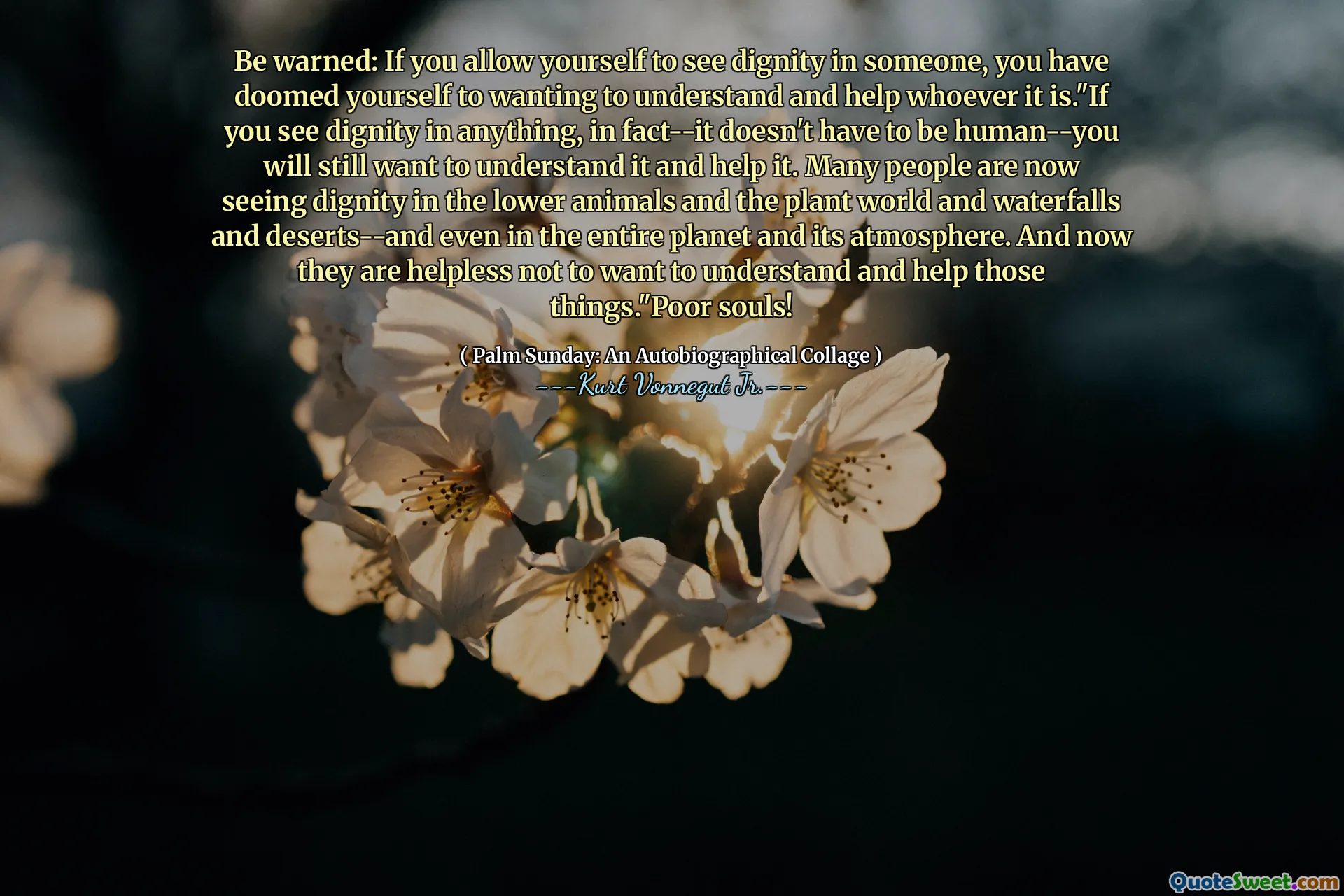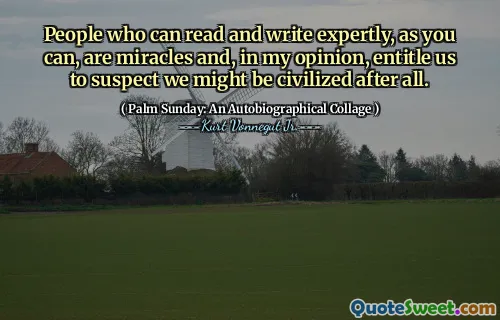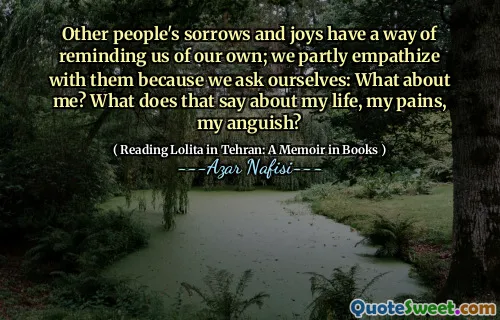
请注意:如果您允许自己看到某人的尊严,那么您注定要理解和帮助任何人。仍然希望理解它并帮助许多人在下部动物,植物世界和瀑布和沙漠中看到尊严,即使在整个星球及其气氛中也是如此。并帮助这些事情。“可怜的灵魂!
(Be warned: If you allow yourself to see dignity in someone, you have doomed yourself to wanting to understand and help whoever it is."If you see dignity in anything, in fact--it doesn't have to be human--you will still want to understand it and help it. Many people are now seeing dignity in the lower animals and the plant world and waterfalls and deserts--and even in the entire planet and its atmosphere. And now they are helpless not to want to understand and help those things."Poor souls!)
库尔特·冯内古特(Kurt Vonnegut)的“棕榈周日”的名言暗示了人类的同理心和联系一个深刻的真相。一旦人们认识到任何存在的尊严,无论是人类还是非人类,就有一种固有的冲动来寻求理解和提供帮助。这种认识可以导致一种富有同情心的心态,它超越了个人利益,引发了培养和保护我们周围各种生活形式和自然的愿望。
vonnegut强调了所有生物和环境中对尊严的越来越多,这表明人们越来越认识到动物,植物甚至自然景观的价值。这种观点的转变可能会使个人因其情感和道德责任的义务加深了他们的义务和理解这些实体的义务。 “可怜的灵魂”的言论强调了这种敏感性和意识所带来的负担,这表明这种不断扩展的意识伴随着挑战。









